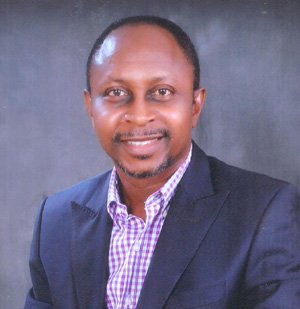Now that the Anambra Governorship election has come and gone, it is apt to reflect on, and possibly draw lessons from, the significant events of those heady days in early November when the sun appeared to stand still over Nigeria’s second smallest state. Among the many lessons of #AnambraDecides, the following six stand out for me:
- Technology and Women saved the day
After similar off-cycle elections in Ondo and Kogi states were manifestly fiddled with, and the Mother of all Injustices was carried out in Imo State, most Nigerians lost faith in the electoral process to produce leaders in the image and likeness of the people’s will. Anambra was expected to be worse, thanks to IPOB sit-at-home orders and the terror of Unknown Gunmen. To make matters worse, the ruling party at the centre, the APC, produced an evil genius as its candidate in Anambra and deployed half of Nigeria’s security apparatus to “dominate” a traditionally opposition state. As election day approached, young men (part of the voter population) began leaving the state in droves for fear of being shot and labeled troublemakers by security forces. It was the perfect recipe for a power grab.
But when polling commenced, two new factors came to play. First, INEC’s new Bimodal Voter Authentication System (BVAS) checkmated attempts by criminal elements to smuggle in fake results. Second, the women and the elderly of Anambra turned out in large numbers to vote. Even trigger-happy security personnel were disarmed by this development. There were no “troublemakers” to shoot. So, under close scrutiny by international and local observers, the elections went on peacefully – much to everyone’s surprise. And although only about 10% of the total number of registered voters eventually managed to cast their ballots, there is an overwhelming sense that the will of the people ultimately prevailed.
- There may be unexpected benefits in off-cycle elections
On November 6, 2021, Anambra was the cynosure of national and global attention. So there was little room for hanky-panky. The tricksters shied away for fear of being exposed under intense scrutiny. Electoral and security officers were on their best behavior. This worked in Anambra’s favor. If there were 35 other elections going on simultaneously across the country, Anambra would have paled into insignificance. The level of scrutiny could have declined. The bad guys could have found room to play. INEC could have claimed it was juggling so many balls at the same time and therefore should be forgiven if a few balls drop… There should probably be a new conversation on the mechanics and merits of phasing all elections in the country to enable INEC, the security agencies and monitoring institutions to improve on efficiency. As a popular Igbo saying goes, “The rat does not eat what belongs to a man who is alert.”
- Political parties will do well to field quality candidates going forward
There were 18 political parties and 18 candidates in the Anambra Guber race. Most of them, including candidates from very small parties, were eminently qualified for the job. There were academics, captains of industry, career politicians, technocrats and hybrids who had traversed two or more fields. They came from all over the globe with bulging portfolios, brandishing local, national and international experience. Anambra was simply spoiled for choice and had to pick only one. There’s a new joke about the rest being available to be loaned to needy states – if the price is right.
Anambra is a model for other states to follow. Perhaps the era when career politicians with nothing else to offer dominated the field is over. They got a hiding in Anambra. Those who say that APGA won because it was “the Igbo Party” are only partially correct. The other part of the story is that APGA fielded perhaps the most formidable candidate in the race – a professor of Economics who had served with distinction as Central Bank Governor, Economic Adviser to Presidents and Consultant to multilateral institutions. And in doing so, they left the people with little or no choice. It was a match made in heaven. If APGA had picked a less formidable candidate, I do not put it beyond the sophisticated Anambra electorate to have voted differently. This should be the new template for successful electioneering in Nigeria.
- There’s a limit to what money can do
An unlikely heroine emerged from Anambra 2021. She is a humble, rural woman of Ebenebe. Chances are that few, even in Anambra State, could readily locate Ebenebe on the map before November 6. Not anymore. On that day, a video clip showing rural women rejecting financial inducement from a party agent went viral as the polls transpired. This woman could be heard telling the party agents in Igbo, “We don’t want APC. They have not treated us well. We don’t want your money.” In a country where poverty levels are alarming and value systems have long been compromised, this was a rare uplifting glimpse of virtue.
The poor, old, rural women of Ebenebe rejected financial inducement to vote right. The rich, young(er), urban Anambra Deputy Governor and some members of the House of Assembly allegedly accepted financial inducement to decamp. Lessons:
- One’s real worth is not defined by bank balances, age or position. It is defined by character.
- Just as they did in the Aba Women’s Riot of 1929, women of the Southeast are once again shining a bright light for the rest of Nigeria to follow.
- Gov. Willie Obiano is smarter than he gets credit for
Almost everyone agrees that when it comes to public infrastructure, education, healthcare, as well as the optics and soundbites of governance, Anambra’s Willie Obiano has not done nearly as well as Peter Obi before him. The people point to the currently broken roads of Anambra, most of which were tarred by Obi about a decade ago, as proof of the gulf between the two leaders in concrete terms. But when it comes to succession engineering, everyone agrees that Obiano has done something which even the highly acclaimed Peter Obi would envy. He found a successor potentially better than himself and he had no shame in openly admitting it and aggressively promoting him to the people. This is a rare act of nobility which very few great leaders manage to pull off. Most leaders pick successors who are like them or worse. Sometimes, it is for fear of being bested. Obiano boldly turned the table. In daring to recruit a successor who is likely to excel him, Obiano earned his place as not just a good man but a master political strategist. The people of Anambra recognized this. It was part of the complex mix of reasons why they overwhelmingly voted Soludo.
If Chukwuma Soludo succeeds, he could well be Obiano’s most enduring legacy – beyond the Anambra Airport in Umuleri. If Willie Obiano suddenly looks good, Peter Obi is vindicated. For so long, the latter was silently accused by a section of his critics of foisting the wrong man on the state. Not any more. In a moment of brilliance, that man has exceeded all expectations. To that extent, Anambra is a lucky state. To have (potentially) three impactful leaders in a row is a luxury that Nigeria and most states of the Federation can only dream of. The country now has a new model of progressive governance and succession to emulate – for a change. There is a rare streak of light in a long, dark tunnel.
- Good things come to those who wait – and prepare
Charles Chukwuma Soludo has been in the waiting room of Government House, Awka, for sometime now. He has run for the office twice before and failed. He did not give up. Instead, he sharpened his skills in the jungle of politics and waited. His time eventually came. APGA, Anambra’s favorite political party, found space for Soludo, one of Anambra’s favorite sons.
Not many would have waited, especially academics like Soludo. Accustomed to passing their exams in flying colors, archetypal academics can’t stand the smell of “failure.” They can’t understand why their classroom accomplishments can’t readily translate to success on the streets or in the polls. But not this academic. He probably knew from lessons earlier in life that “failing” is sometimes the best way to grow and succeed. Those who were at the University of Nigeria Nsukka (UNN) back in the early 1980s would recall that Soludo ran for office with a highly memorable campaign slogan, “Soludo is the Solution.” So, it can be said that he is one of those rare individuals who have both academics and politics running in their veins. And now that he has found his mojo with his second love, he has one hell of a race to run. Legacy awaits.

Victor Anazonwu is a historian, journalist and author. He writes from Lagos.
![]()



